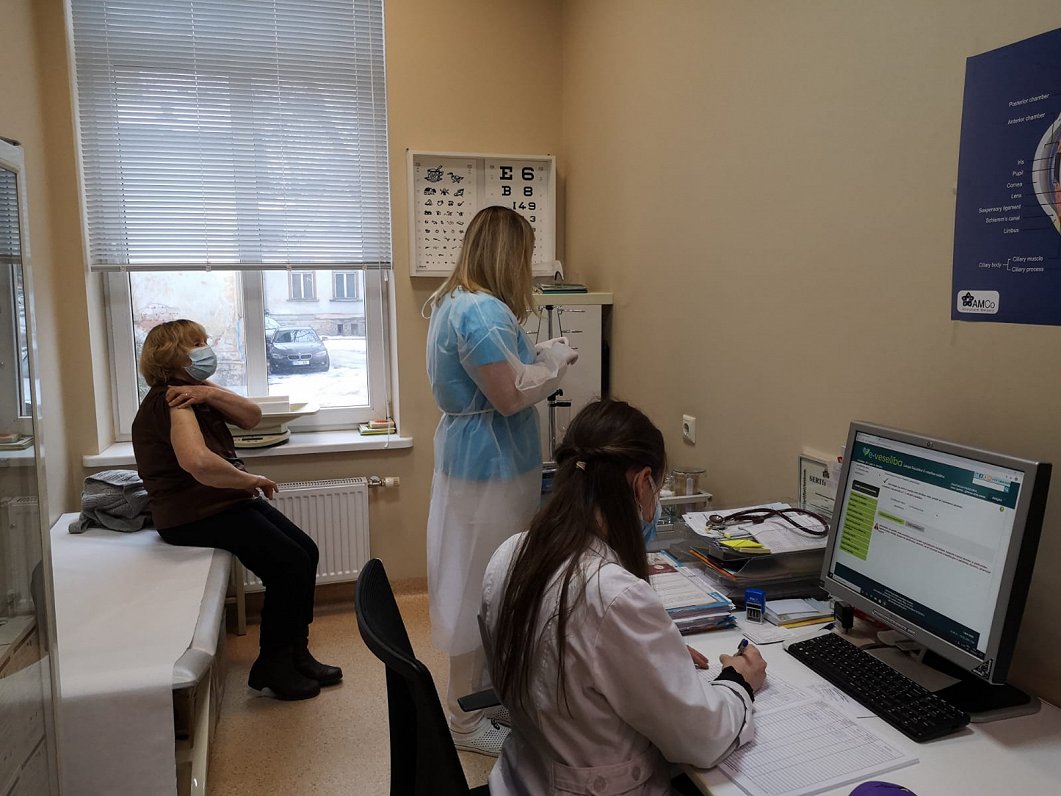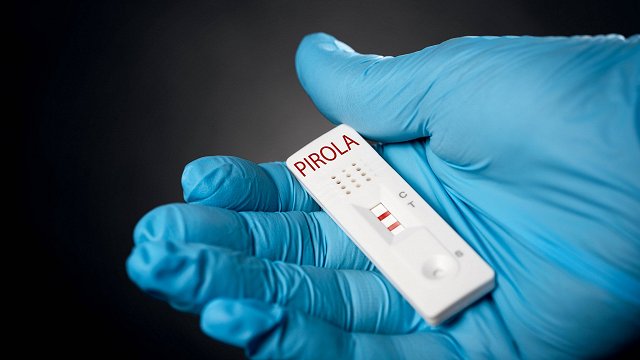The total number of cases since the start of the pandemic now stands at 88,022.
Of 14,339 tests carried out in the last 24 hours, 6.4% were positive, up on the 4.5% ratio the day before. 4% is regarded as the threshold rate at which the virus is spreading in an uncontrolled manner.
The 14-day cumulative infection rate per 100,000 inhabitants dropped further below the 500 threshold, inching down again from 493.1 Tuesday to 491.6 Wednesday. Anything over 200 is rated as a "very high risk" situation.
? Pēdējo 24h laikā:
— SPKC.gov.lv (@SPKCentrs) March 3, 2021
▫️veikts 14 339 Covid-19 izmeklējums;
▫️reģistrēti 919 jauni inficēšanās gadījumi;
Unfortunately sixteen more deaths were also confirmed March 3. One victim was aged 30-39 years, two were aged 50-59, two were aged 60-69, one was aged 70-79, nine were aged 80-90 and one was aged 90-99.
A total of 1,655 people have now died in Latvia as a result of the coronavirus since the start of the pandemic according to official statistics.
The National Health Service (NVD) said that on March 2, 1,634 people received a first vaccination dose while 291 received a second dose. In all 48,709 people have received a first dose and 17,535 have received two doses.
On March 3 Lithuania reported 503 new cases of coronavirus as its total number of cases since the start of the pandemic passed the 200,000 mark. Meanwhile Estonia reported 1,467 cases, its second-highest daily total since the start of the pandemic.
Following a cabinet meeting on March 2, much of the Latvian government's attention was focussed on events in Estonia and the possibility that Latvia could soon see a similar surge in cases as a third-wave of coronavirus takes hold, potentially involving deadlier and more easily-transmitted variants of the virus such as the one first detected in the United Kingdom.
Latvian Radio reported March 3 that at the suggestion of Prime Minister Krišjānis Kariņš, ministries have been given until next week to prepare proposals for scenarios for both tighter restrictions and easing of restrictions according to the epidemiological picture to make it possible to identify the effects and consequences of the various options.
Juris Perevoščikovs, the leading expert at the Center for Disease Prevention and Control, said that in the context of the spread of the new British type of Covid-19, remote working whenever possible must be a main requirement.
The government and experts are expected to discuss a wide range of scenarios, including restrictions on movement between municipalities, which have also been practiced in neighboring Lithuania for some time.
Meanwhile, the Latvian Exporters' Association "The Red Jackets" in a statement to the media expressed concern about the possibility of restricting the activities of manufacturing companies, warning that this would have catastrophic consequences for the long-term competitiveness of Latvia's exports, Latvian Radio said.
Covid-19 information
You can find all the latest Covid-19 statistics, including breakdowns by geographic location and age, at this official website.
A summary in English of the latest Covid-19 situation including restrictions in place and rules on public assembly is available at this special government website.
Use of nose and mouth coverings is compulsory in all public places indoors, including workplaces, and there are restrictions on what goods can be bought from stores. Physical distancing and frequent hand washing and sanitary cleaning habits are encouraged.
The current state of emergency runs until April 6.
The dedicated Hotline for Covid-19 related inquiries (24 hours, 7 days a week) is 8345. The number for medical emergencies is 113.
All arrivals to the country (including returnees) need to fill in an electronic declaration prior to coming to Latvia. It is available at the website covidpass.lv. Until April 6, entry to Latvia is only allowed for the reasons listed in our other story.
Since January 15 arrivals have needed to show a negative Covid-19 test from a maximum 72 hours before arrival.






























